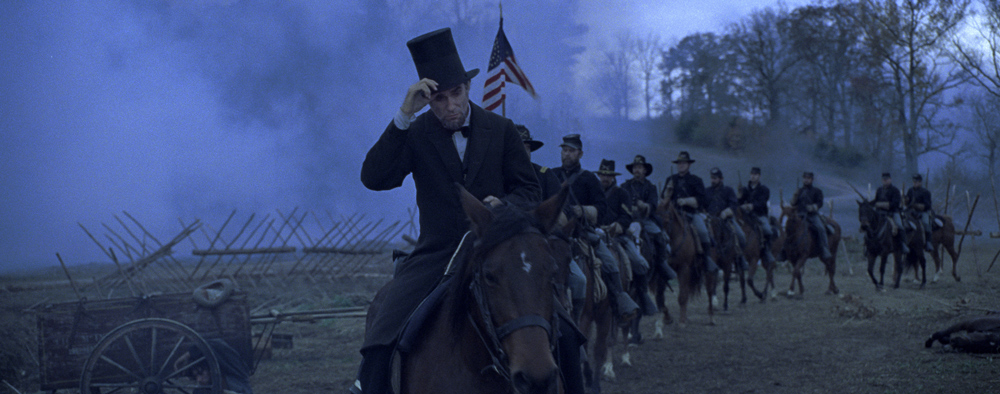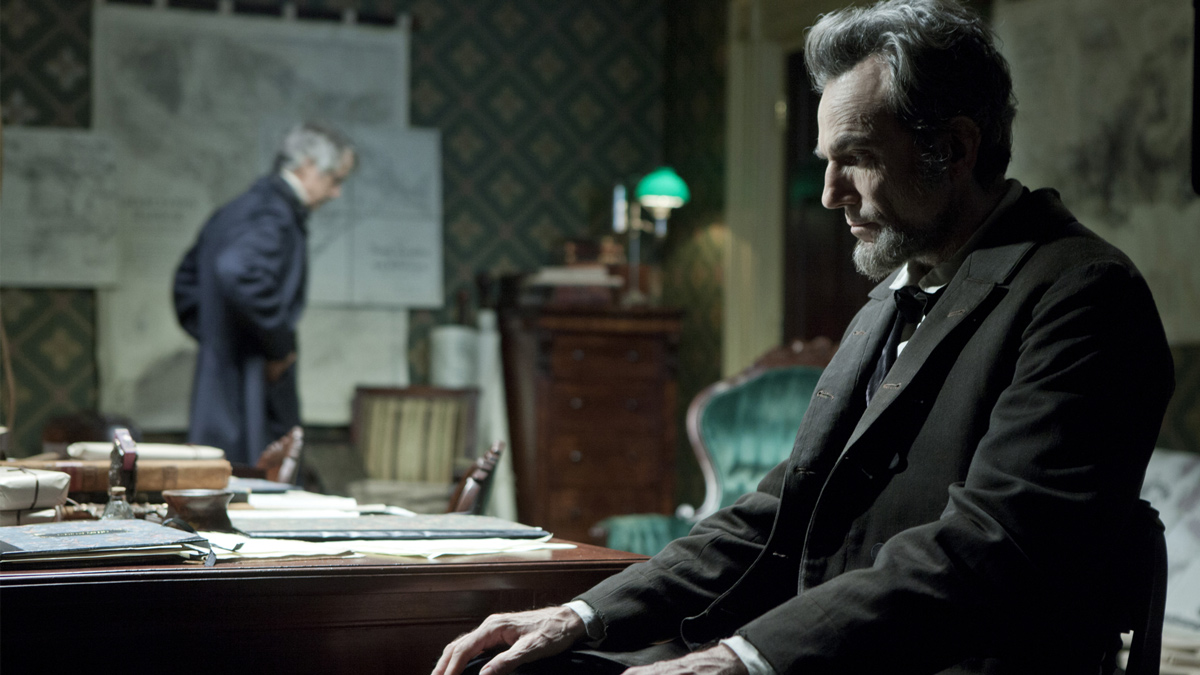2024.02.14
Lincoln Synopsis
America during the Civil War. The battle that divided the country in two continued for four years, and the war situation was beginning to tilt in favor of the Union Army. President Abraham Lincoln, in his second term in office, was aiming to enact the 13th Amendment to the United States Constitution, which abolished slavery, but faced a lot of opposition and found himself in a difficult situation. Meanwhile, Lincoln's eldest son joins the Union Army against his mother's wishes, and his relationship with his wife Mary deteriorates. Despite many hardships, Lincoln did everything in his power to get the 13th Amendment to the United States Constitution passed.
Index
- “Dialogue” and “strategy”
- A realist and conflicted father
- A script that took six years to write
- Enveloped in light
“Dialogue” and “strategy”
The movie ``Lincoln'' (2012) depicts a bloody battle between the Confederate and Union forces from the beginning. In the pouring rain, he pierces the heart with a bayonet and buries his face in the mud. The Battle of Jenkins Ferry was one of the deadliest battles of the Civil War.
However, unlike ` `Saving Private Ryan '' (1998), where Steven Spielberg burned the Inferno of Omaha Beach endlessly onto the screen, he immediately switches cuts. The image shown is President Abraham Lincoln (Daniel Day-Lewis) listening to the complaints of black soldiers that their monthly pay is three dollars less than white soldiers and that there are no black officers. Eventually, white soldiers gather around him and excitedly tell him that they were impressed by the Gettysburg Address. Within just the first few minutes of the film, Spielberg vividly depicts that this is not a movie about "fights" but rather a movie about "dialogue."
This work is also a “strategic” movie. The Civil War began with a conflict over slavery (there was also a conflict between the South, which advocated free trade, and the North, which advocated protectionist trade). Slavery was indispensable to secure black labor in the South, which focused on agriculture such as cotton. Meanwhile, the North was becoming increasingly industrialized and opposed to slavery. Although Lincoln issued the Emancipation Proclamation in 1862, its practical effect was extremely limited. In order to truly abolish slavery, it is essential to pass the 13th Amendment to the Constitution.

"Lincoln" (c)Photofest / Getty Images
However, there was a big problem. The Civil War is coming to an end, and victory for the Union is at hand. If a peace treaty was concluded with the Confederates before the passage of the 13th Amendment, some people who were skeptical about the emancipation of black people but believed that slavery was necessary to end the war , there is a risk that they will change their opinion again to preserve slavery. Already, a Confederate delegation was on its way to Washington with proposals for an immediate end to the civil war. Before they arrive, Lincoln needs to pass the Thirteenth Amendment. Will it be passed by the House of Representatives first, or will the delegation arrive first? There's a kind of time-limit suspense in play here.
There are other problems as well. Even if all of Lincoln's Republicans voted for Article 13, it would still require a two-thirds majority, 20 votes short. They must get 20 yes votes from their Democratic opponents. But Lincoln had a secret plan. In the last election, the Democratic Party lost 64 seats. He said that if he promised those who had lost their jobs a suitable position, they would "vote according to their convenience."
He contacts lobbyists secretly through Secretary of State Seward (David Strathairn) to undermine the Democratic Party. "Lincoln" is a story of "dialogue" and "bargaining" that depicts political maneuvering throughout the entire film.
A realist and conflicted father


